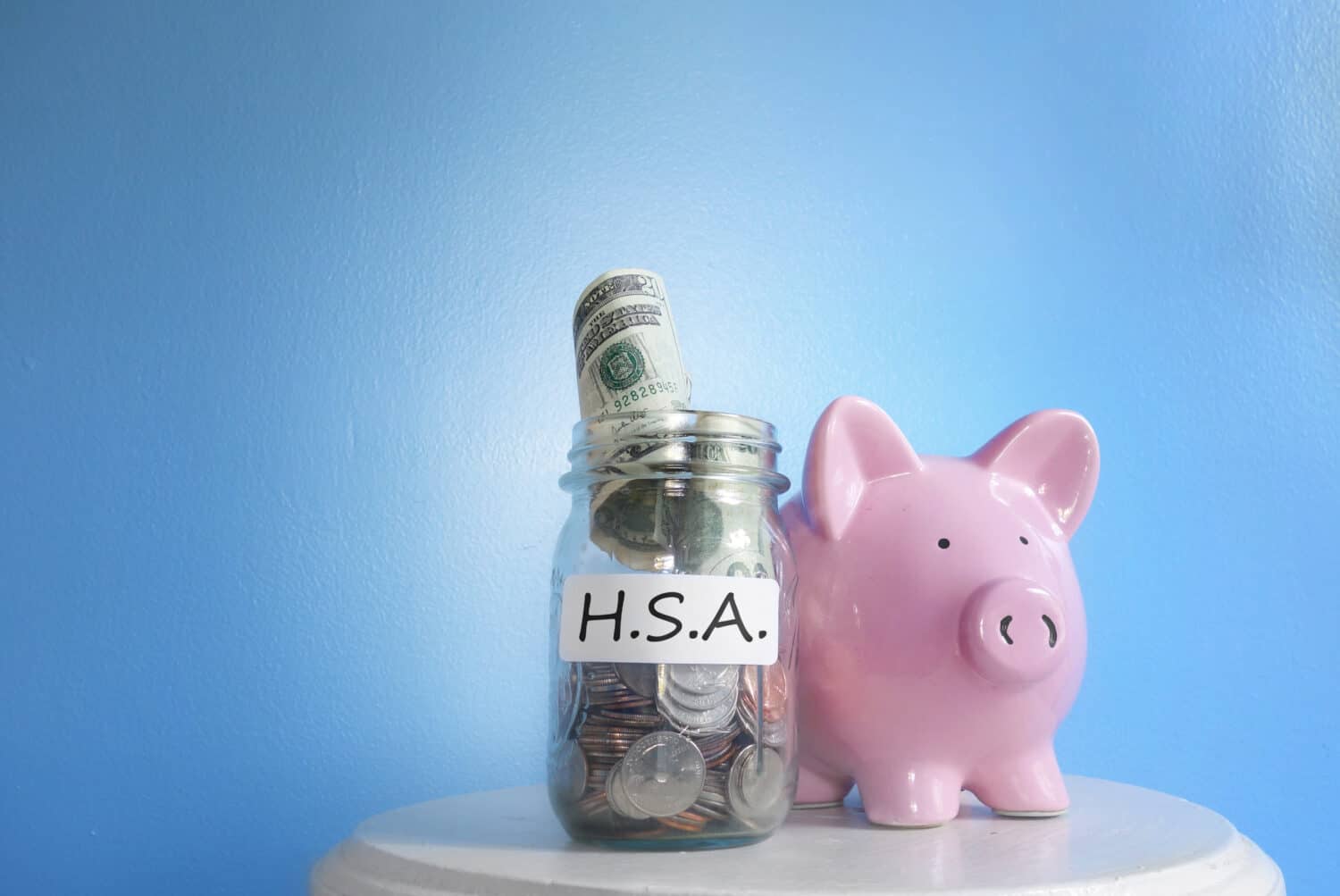
Health savings accounts (HSA) can help you sock away money for various medical expenses, while benefiting from distinct tax breaks.
In fact, you can withdraw money from an HSA to cover any qualified medical expense tax-free. The IRS defines qualified medical expenses.
What are HSA-eligible expenses?

HSA qualified medical expenses currently cover a wide range of medical, dental, vision, and prescription costs.
Here are some examples.
Medical
Acupuncture
Acid controllers
Alcoholism treatment
Allergy and sinus medicine
Ambulance
Anti-diarrheals
Anti-gas products
Anti-itch and insect bite
Anti-parasitic treatments
Baby rash ointments/creams
Birth control
Body scans
Braille books and magazines
Breast pumps and lactation supplies
Chiropractor
Co-insurance (medical, dental or vision)
Co-payments
Cold sore remedies
Cough, cold and flu
Crutches or canes
Deductibles
Diabetic supplies
Diagnostic services
Digestive aids
Drug addiction treatment
Feminine anti-fungal/anti-itch
Fertility enhancements
Flu shots
Guide dogs or other service animals
Hearing aids and batteries
Hemorrhoidal preps
Hospital services
Insulin
Laboratory fees
Lamaze classes
Laxatives
Learning disability treatments
Menstrual care products
Mastectomy-related special bras
Medical equipment and repairs
Medical monitoring and testing devices
Medical supplies
Motion sickness
Nursing services
OB/GYN
Office visits
Oxygen
Pain relievers (for example, aspirin)
Physical exams
Physical therapy
Pregnancy tests (over-the-counter)
Prescription drugs
Prosthesis
Psychiatric care
Reconstructive surgery following
Respiratory treatments
Mastectomy
Sleep aids and sedatives
Smoking cessation (programs/drugs)
Speech therapy
Sterilization
Stomach remedies
Surgery
Transportation, parking and related
Travel expenses
(essential to receive medical care; subject to IRS limits)
Vaccinations
Vasectomy
Weight loss program and/or drugs
(if prescribed by a physician to treat a specific medical condition)
Wheelchair
X-ray fees
Dental
Braces
Dentures
Exams
Extractions
Fillings
Teeth cleaning
X-rays
Vision
Contact lenses
Examinations and glasses
Laser eye surgery
Reading glasses (over-the-counter)
It’s important to note that the IRS can change its list of qualified medical expenses at any time. You can find the latest details by reviewing the latest IRS Publication 502.
Some HSA-eligible expenses also require a doctor’s diagnosis. So be sure to contact your HSA provider for the latest information as well.
What aren’t HSA-eligible expenses?

While qualified medical expenses as defined by the IRS cover a wide range of services, it doesn’t include all treatments you may need.
Here are some examples.
Cosmetic procedures, unless they correct a deformity or treat an underlying medical condition
Employment-related physical exams
Funeral expenses
Health insurance premiums, unless you have COBRA continuation coverage or receive unemployment benefits
Imported medications that aren’t FDA-approved
Infant formula, even when the mother can’t breastfeed
Late payment charges and missed appointment fees
Life insurance premiums
Long-term disability premiums
Marijuana, even if it’s prescribed by a doctor
Also, keep in mind that withdraws for non-qualified medical expenses would trigger ordinary income tax on the distribution and a 20% penalty.
How does an HSA work?

To be eligible for an HSA, you need to be covered by a high-deductible health plan (HDHP).
You may be able to open an HSA through your employer. But you can also open an account through a financial institution like Schwab or Fidelity.
Many financial institutions allow you to invest in an HSA much like you’d invest in an individual retirement account (IRA.) This means you could invest your HSA dollars in mutual funds and exchange-traded funds (ETFs) designed for long-term growth.
Why this matters

If you’re eligible for an HSA, it can help you cover unexpected medical expenses and get some tax breaks. But in order to make the most out of HSA tax benefits, you need to use your HSA funds on qualified medical expenses, as defined by the IRS. So we compiled this guide for you. But be aware that the IRS can change its list of qualified medical expenses at any time. So make sure you review the latest version of Publication 502.
If you want to learn more about HSAs, check out our regularly-updated HSA main page for the latest coverage.
Get Ready To Retire (Sponsored)
Start by taking a quick retirement quiz from SmartAsset that will match you with up to 3 financial advisors that serve your area and beyond in 5 minutes, or less.
Each advisor has been vetted by SmartAsset and is held to a fiduciary standard to act in your best interests.
Here’s how it works:
1. Answer SmartAsset advisor match quiz
2. Review your pre-screened matches at your leisure. Check out the advisors’ profiles.
3. Speak with advisors at no cost to you. Have an introductory call on the phone or introduction in person and choose whom to work with in the future
Get started right here.
Thank you for reading! Have some feedback for us?
Contact the 24/7 Wall St. editorial team.


